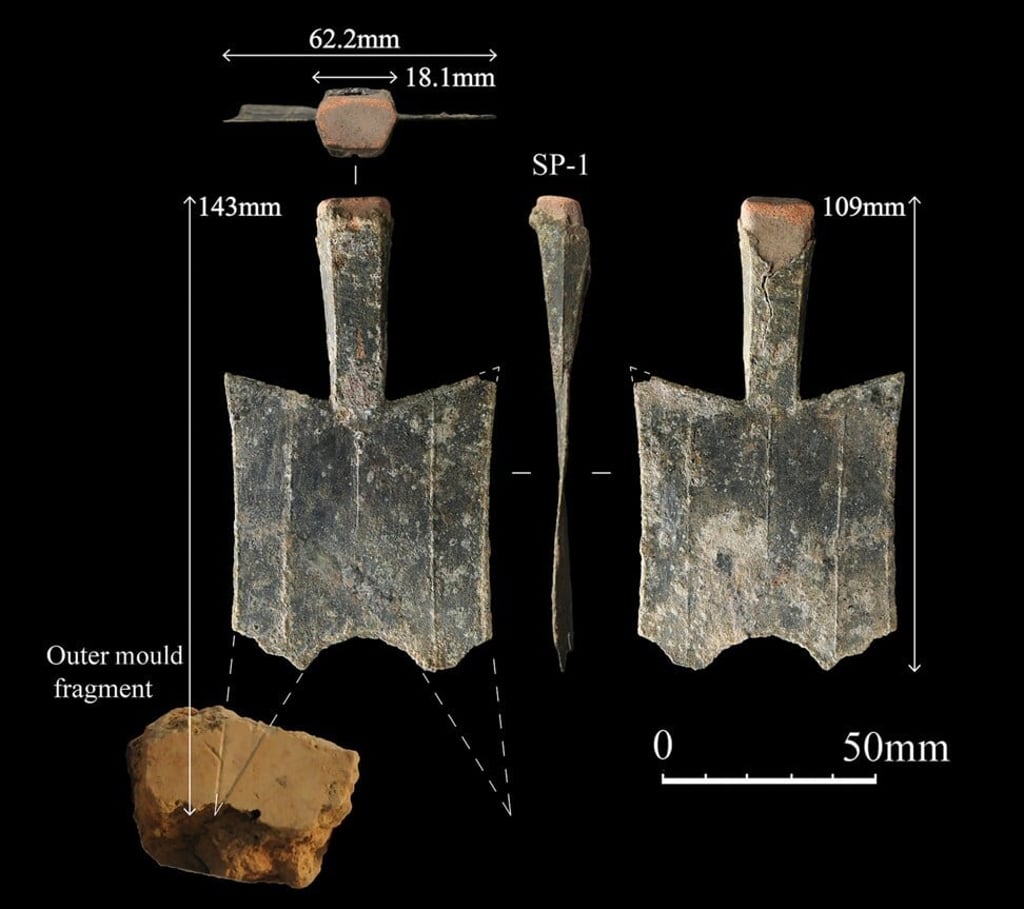Could this site in central China have produced the world’s oldest coins?
- Archaeologists unearth a mint in Henan province that may have been making money almost a century before the first known site in modern Turkey
- The spade-shaped coins it produced would have needed a complex support network to supply metal and moulds

A team of archaeologists has discovered a mint in central China that they say may have been the place where the world’s first coins were produced.
Excavations suggest that the mint’s operations began sometime between 640 and 550BC – up to a century before the first known coins were produced by the kingdom of Lydia in modern-day western Turkey.
Although the wooden structures that are thought to have occupied the site are long gone, researchers discovered more than 3,000 pits where workers dumped the industrial waste that proved the existence of money making activities.
Work at the site at an ancient city ruin in Guanzhuang, a village outside Zhengzhou, the capital of Henan province, began in 2011. The initial discoveries included plenty of bronze items – such as ritual artefacts, weapons and musical instruments – and were broadly in line with expectations.
Only when some clay moulds and broken coins shaped like a spade came to light that the archaeologists realised the history of money might need to be rewritten.

